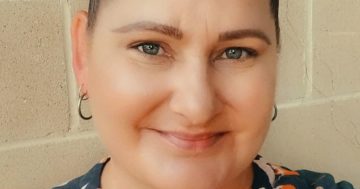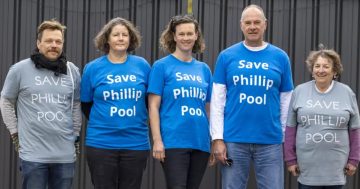
For such a common issue, why is it so difficult to talk about chronic pain? Photo: File.
This week, my lower back flared up once again – a regular occurrence due to the chronic illness I live with, fibromyalgia.
I had to cancel a few plans because when I have a flare-up, my back and other muscles spasm and cause acute pain. It becomes challenging for me to stand or walk for long periods or sit in certain positions.
Immediately, a good friend asked me what caused the flare-up. My response is always the same: nothing caused it.
Fibromyalgia is a little-understood illness. Flare-ups are triggered by any number of things – a change in weather, a slight change in your daily activities, or simply fatigue.
The exact cause is still unknown, but it’s believed that the pain is a result of the nervous system overreacting to minor incidents and over-firing pain signals. I never know when I’m going to have a flare-up, it just tends to happen.
I do loads of physiotherapy and exercises to try to maintain my muscle strength and general health, but it doesn’t prevent flare-ups.
My friend’s question was perfectly natural, but it still made me sigh because it never gets easier trying to explain an invisible illness that is so debilitating yet hard to diagnose and picture for people who haven’t experienced it.
I’m not alone.
Chronic illnesses are often invisible from the outside but extremely debilitating for the patient. But half the impact in my experience is not even related to the actual pain I’m experiencing – it’s trying to explain to other people and justify why I may not be able to work as normal, participate in other activities, be walking or holding myself differently, and need more rest than usual.
I’ve had every kind of response to my condition.
People have told me it’s because I don’t take turmeric supplements, that I should try immersion therapy; one friend even suggested that I try letting a hookworm infest me as a cure. You can order them online, apparently, and just let the sucker burrow through your skin.
It’s exhausting and frustrating to explain my condition all the time, but I also accept that people struggle to understand it, largely because there’s very little community education or awareness of chronic illness. Part of the struggle is getting the support we need in work and other environments to manage our pain and still be able to participate in society.
I’m one of the lucky ones – my workplace is very flexible and responsive to my condition and supports me in making the adjustments I need during nasty flare-ups. But I’ve been in other environments where I’ve questioned the validity of my condition, had to argue for basic adjustments, and even been told I must be overreacting or imagining things.
Friends and family of mine who also have chronic illnesses but appear able-bodied tell similar stories. My mother, who has debilitating rheumatoid arthritis held off getting a disabled parking permit for years even though walking any significant distance causes immense pain in her joints because she thought people would criticise her in car parks for not having a clear visible indicator of disability like a wheelchair or walking aid.
I have a male friend who also has debilitating arthritis. He was once publicly shamed for not helping a woman with a pram get on public transport when his hand and wrist strength at the time barely allowed him to lift a full cup of tea.
I think we need more widespread and effective public education about chronic illnesses and how they impact patients to avoid this type of ableism and to support us to access the services and support we need without the associated shame and confusion it entails.
I know that when I recover from this flare-up, people will immediately ask me if I’m ‘better’ now.
Unfortunately, the answer will be no – I will still be in pain as I am every single day. Flare-ups are just pain amplified. There is no cure. I will live with this for my whole life. But it never feels polite to say that, so I’ll probably respond with something like, ‘Yeah, I’m feeling much better now’ because I hate feeling like I’m making a big deal out of my condition.
There’s work there for me to do in becoming more confident to speak openly about my experiences and gently educate people. But it would be so helpful if others could meet me (and my fellow sufferers of chronic illness) halfway. A starting point would be to ask, ‘How are you feeling today?’ instead of ‘Are you better now?’
I have had people say to me before that I shouldn’t expect everyone to ‘get’ it, and maybe it’s actually down to me being more resilient and not worrying about other people’s expectations of my health or recovery when I’m having a flare-up. But I feel like there’s scope for improvement on both sides. Am I being precious, or is it time we did better as a society at understanding chronic illness?





















